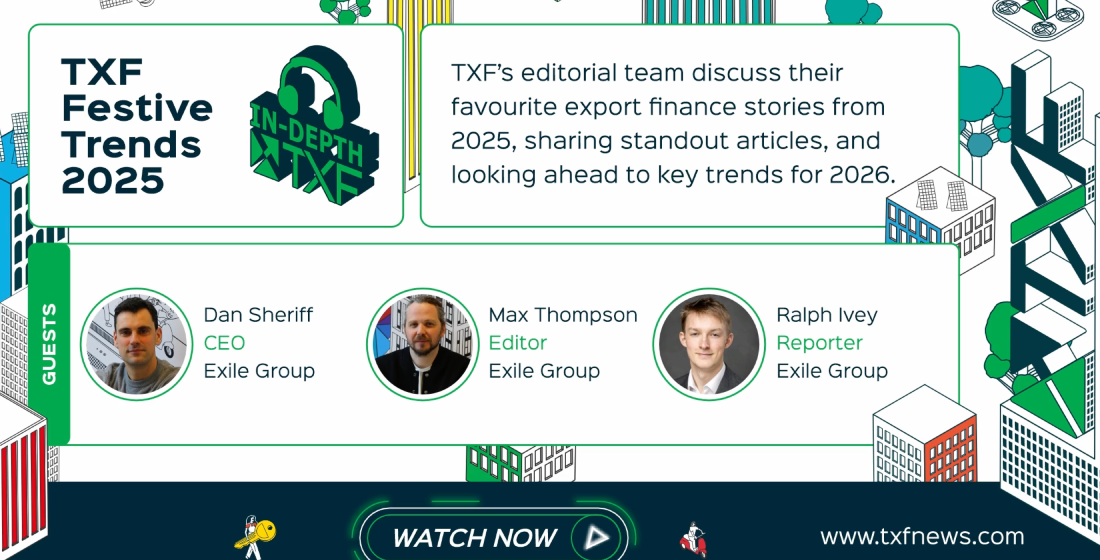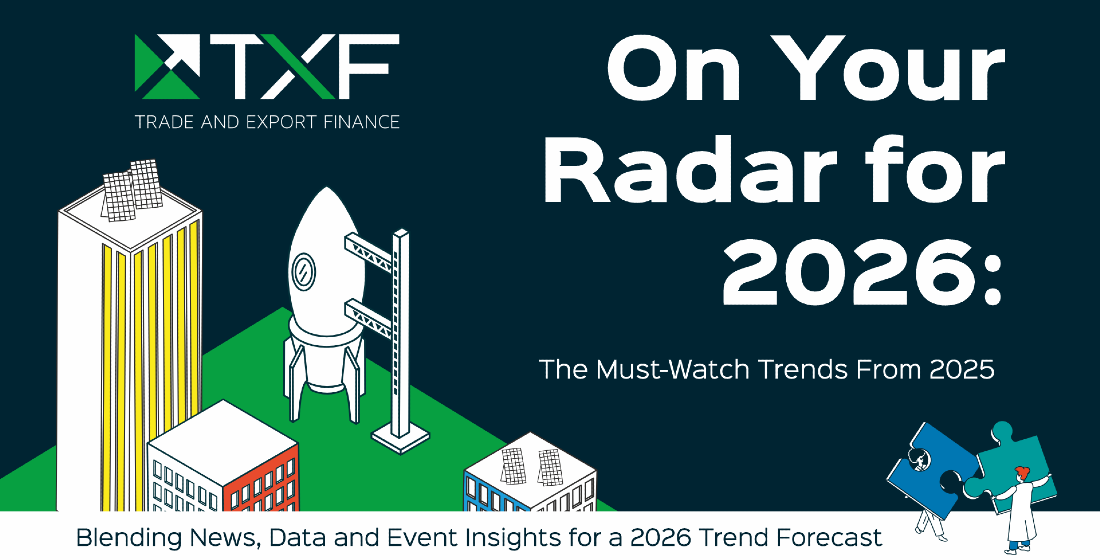TXF’s Bespoke Bank Heatmap Research Reports
The TXF Bespoke Bank Heatmap Research Reports - comprising both quantitative and qualitative data - delve into the strengths and weaknesses of the top 15 commodity trade finance banks across seven criteria, providing indispensable client insights tailored to each individual bank.

How do commodity traders really rate their banks? Well, from customer service and industry expertise to deal execution and commitment to ESG and impact investing, 15 commodity trade finance banks were individually scored across seven criteria in TXF’s Bespoke Bank Heatmap Research Reports.
Using a data heatmap, coupled with anonymous quotations from respondent traders and producers, the written-to-order reports offer a comprehensive and exclusive look into where corporate borrowers’ view the strengths and weaknesses of the banks they work with.
The data was collected using a mixed methods design that comprises a quantitative component - an online survey, and a qualitative component - follow-up phone and email interviews. The result is a heatmap showing how the top banks in the commodity trade finance space scored across seven areas, contextualised with detailed qualitative insights.
Over 100 respondents completed this survey. It must be noted that the data presented in this report is from a sample that represents a small percentage of the commodities industry at the time that the data was collected (between May and November 2021). But these caveats are common across many pieces of niche research, and while they must be acknowledged, they do not detract from the conclusions drawn from the data and still allow for reliable conclusions to be drawn.
The qualitative element of the reports further strengthens the conclusions taken from these data – essentially, the heatmap gives the ‘what’ and the quotations give the ‘why’. The heatmap ranks the top 15 commodity trade finance banks across seven criteria, with 1 meaning very dissatisfied and 5 meaning very satisfied.
Each bespoke bank report not only explores these data but uses anonymous client quotations to detail why they scored the banks the way they did, and to provide well-rounded and thorough insights, as well as comments on the commodity trade finance banking market in general.
The seven key evaluation criteria are as follows:
Industry expertise
This encompasses the institution’s competency in their field of business (product, regional expertise, etc.). Expertise covers the level of knowledge and skill, as well as advice, that banks provide to commodity traders.
Understanding of Business
Defined as the level of understanding an institution has for the business of its client (metrics, KPIs, success drivers, risks, etc.). Involves everything from product and project framework to the macro-environment and a joint-discussion/due-diligence assessment of the commodity trader’s industry.
Customer Service
Defines the amount and quality of client assistance the institution offers. This includes aspects such as responsiveness, communication, value added services, etc.
Commitment to ESG and impact investing
Defined as the quality of dedication to ESG (environmental, social and governance) and impact investing, including ESG-tied debt and internal ESG criteria.
Efficient and effective deal execution
Defined as how well-organized and competent a bank is in relation to getting deals to the point of financial close in a timely and satisfactory manner.
Range of financing options
Defined by the variety of product options that a bank offers its borrowing clients.
Willingness to work with alternative asset managers
Defined by a bank’s appetite to work with funds or institutional investors on a collaborative/hybrid basis.
Although all seven performance scores are equally weighted when calculating the overall bank scores, the report also breaks down which criteria are considered to be the most important to corporate borrowers, which is extremely important as it contextualises the data. In other words, if a bank scores poorly in a category that has been ranked as the least important, it implies a weakness of much less importance than when compared scoring poorly in the most important category, so it is vital to acknowledge the differing importance of each criteria.
Considering that the commodity finance industry is niche market that operates on razor thin margins and where prices are constantly changing, it is unsurprising that efficient and effective deal execution (65%) and understand of clients’ business (65%) were voted as the most important attributes by borrowers when considering a commodity trade finance bank.
Considered the least important was the ‘commitment to ESG and impact reporting’ category, of which only 10% of corporate borrowers thought this to be the most important attribute when considering a commodity trade finance bank. This could be because investor/bank pressure for corporates to have a strong ESG criteria is much stronger than from the corporates themselves.
‘Willingness to work with non-bank lenders’ also scored low in terms of importance, with only 12% considering it to be important, which is expected due to it being a relatively new concept in general, and a brand-new criterion on the TXF bank heatmap.
If you are interested TXF’s Bespoke Bank Heatmap Research Reports, please contact Charles Osborne at charles.osborne@txfmedia.com





